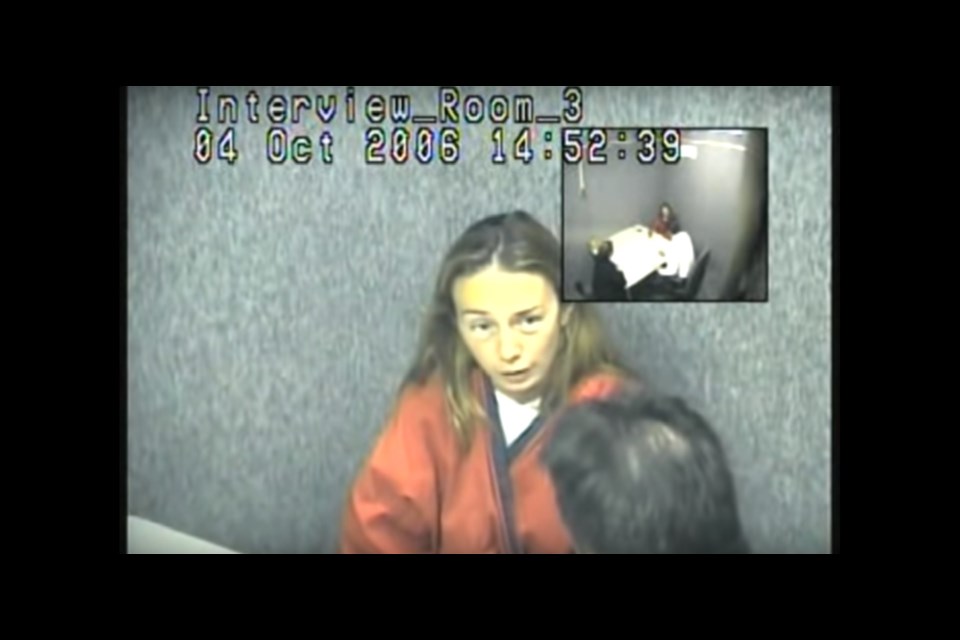A Barrie woman who drowned her two young daughters has been a “model inmate” and has been granted permission to continue to leave her minimum-security facility on escorted temporary absence (ETAs) passes.
The Parole Board of Canada extended the passes for Frances Elaine Goodine, formerly Campione, on March 3 following a review.
She has been granted the ETAs for personal development since 2018, although they’ve been interrupted for more than a year by the pandemic.
Goodine, now 46, is serving a life sentence for two counts of first-degree murder with no chance of parole for 25 years. Goodine drowned her two young daughters, 19-month-old Sophia and three-year-old Serena, in the bathtub of her north-end Barrie apartment in 2006. She was involved in a custody dispute with her ex-husband at the time.
According to the board’s review of the facts, she contacted police, admitting to the offence, but claims to not to recall the actual drownings. She then attempted to commit suicide.
Police found the girls lying on her bed, holding hands with a rosary and a photo album between them.
Goodine was later convicted of first-degree murder and an appeal was rejected in 2015.
“A psychological risk assessment, dated Oct. 5, 2020, rated you as a low risk to re-offend violently. The psychologist noted you accept responsibility for your offending behaviour, demonstrate good insight into your problem areas, and have been compliant with treatment,” the panel wrote in its decision this month.
The parole board panel indicated the unnamed victim in the case doesn’t support her application and requested that specific geographic areas be avoided, noting that she won’t be in those areas.
In its report, the panel indicated she participated in a series of programs, including those to address risk.
Goodine, it adds, works at the facility, participates in chaplaincy workshops and takes post-secondary courses.
The passes have allowed her to attend church and Bible study, go to a course dealing with anger and emotions, and participate in a recovery program.
When pandemic restrictions are lifted, she will be able to continue to go to church every week for mass as well as special holidays, for up to five hours while escorted by a trained volunteer. The ETAs also allow her to go to the recovery program every week for up to five hours and take a self-love and worthiness course, involving four hours once a week for eight weeks.
“You have been described as a model inmate and you have remained co-operative and engaged in your correctional plan (CP). You have actively participated in treatment and you recognize you have long-term mental health needs that require ongoing treatment,” the panel concluded.
